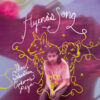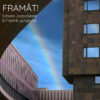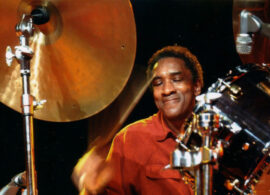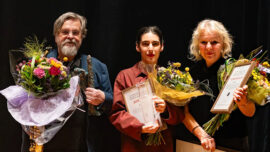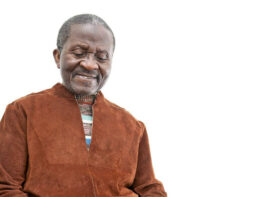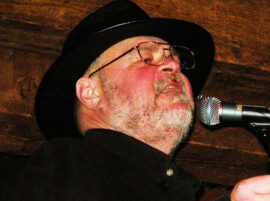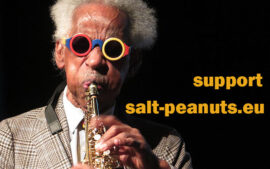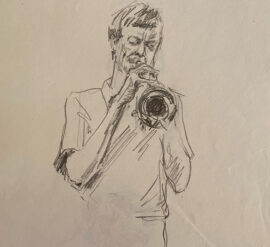
Estonian, Copenhagen-based alto sax player-composer Maria Faust never adopted conventional compositional strategies, and always surprises with her bold, experimental approach. Her new chamber work Mass of Mary (2020) does the same by rethinking old forms anew and matching elements of medieval music, modern jazz, contemporary music, and old Estonian folk music. Furthermore, this work is dedicated to the victims of domestic violence. «This work does not blame or teach and does not propose solutions. Rather, it is a consolation and it is the least that I, as a composer and a human being, can do, and give to society», writes Faust.
Faust has used both liturgical Mass text as well as the texts of esteemed Estonian playwright (and art historian) Eero Epner and writer Karl Ristikivi. The texts ( adopt the structure of traditional masses (Mother, Child, Holy Spirit, and Finale), but with an additional twist that addresses intimate, emotional issues, concerning the fragility of familial relationships and in particular the victims of domestic violence. Faust is accompanied by the Estonian chamber choir Collegium Musicale, founded in 2010 and led by conductor Endrik Üksvärav, specializing in a repertoire that extends from Renaissance to contemporary music with a special focus on Estonian composers. Mass of Mary was premiered at St. John’s Church in Tartu, Estonia, in July 2021 and was recorded at Arvo Pärdi Keskus (Arvo Pärt Centre) in the village Laulasmaa in Estonia in February 2022.
Mass of Mary, in a similar way to the legacy of the blues that expressed in a spiritual manner the plight of Afro-Americans through many generations, frames domestic violence as an almost eternal sin, that may find its spiritual redemption in songs and music expressing its horrific impacts. «Mother», for example, describes a futile phone call from a domestic violence victim, most likely to the local police, and asks: «How can a song, that almost never stops, / lose melody and form and fade into a string of words? / How can dancing feet become echoing steps / with a strange, broken rhythm?». «Child» attempts to convince a victim’s child of a possible safe haven: «Sleep, little darling, safe in your cradle, / the wind whispers softly in the old tree. / Tenderly guarded, fully protected, / this is the lullaby once sung to me». «Holy Spirit» captures the inability of the authorities to supply a legal solution and concludes with the irreverent lines: «Take me back, Father. / Forgive me, Father. / I forgive you, Father», while the «Finale» simply demands an answer from ones who stick to authoritative-patriarchal beliefs: «Does man have a soul?».
Mass of Mary is, undoubtedly, the most ambitious and most vocal – literally – work of Faust, thematically and musically. Faust weaves a dramatic and highly emotional, moving narrative that expands her open and encompassing musical vision and language. She employs brilliantly the angelic female soloists, the choir, often acting as a choir in the Greek tragedies, and the chamber ensemble of bassoon, trumpet and trombone players, and herself on the alto sax, in a way that colors Mass of Mary in a mythic perspective.
Eyal Hareuveni
Chamber choir Collegium Musicale; Helina Kuljus (soprano), Lili Kirikal (soprano), Oliver Povel (tenor), Maria Faust (as), Kristjan Kungla (bassoon), Indrek Vau (tp), Andres Kontus (tb), Endrik Üksvärav (cond)


